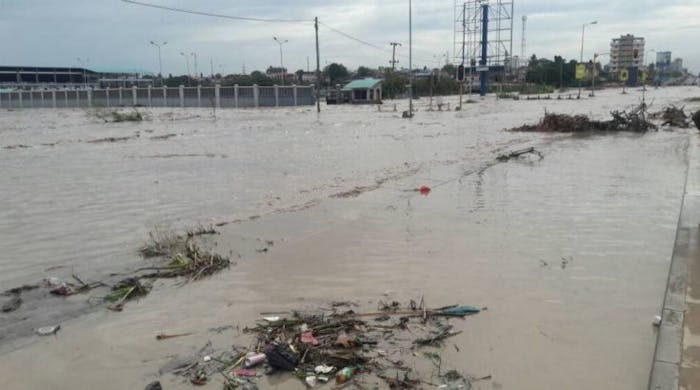Flooding issues in Dar es Salaam
Dar es Salaam is in the eastern Tanzania. It is the country's largest city, with about 4.3 million inhabitants and affected by flooding in almost every rainy season, affecting lives and livelihoods, destroying infrastructure, and causing food insecurity and health problems.
The Dar es Salaam flooding problem is exacerbated by uncontrolled urbanization characterized by informal settlements. Moreover, floods have greater impacts on communities with lower economic background, as it leaves these even more vulnerable than before the floods.
‘Jipange Project’ is part of World Bank's Tanzania Urban Resilience Programme (TURP) with the objective of “building and strengthening urban resilience to current climate variability and future climate change in Tanzania’s cities and towns”. The project aims to strengthen disaster preparedness and response capacity of 12 Ward Disaster Management Committees (WDMCs) through training and capacity development and to strengthen community resilience by supporting them to develop Disaster Risk Reduction Plans (DRRPs) and Disaster Preparedness and Response Plans (DPRPs).

 06 Clean Water and Sanitation
06 Clean Water and Sanitation
 13 Climate Action
13 Climate Action
 15 Life On Land
15 Life On Land
 03 Good Health and Well-being
03 Good Health and Well-being
 10 Reduced Inequalities
10 Reduced Inequalities
 11 Sustainable Cities and Communities
11 Sustainable Cities and Communities